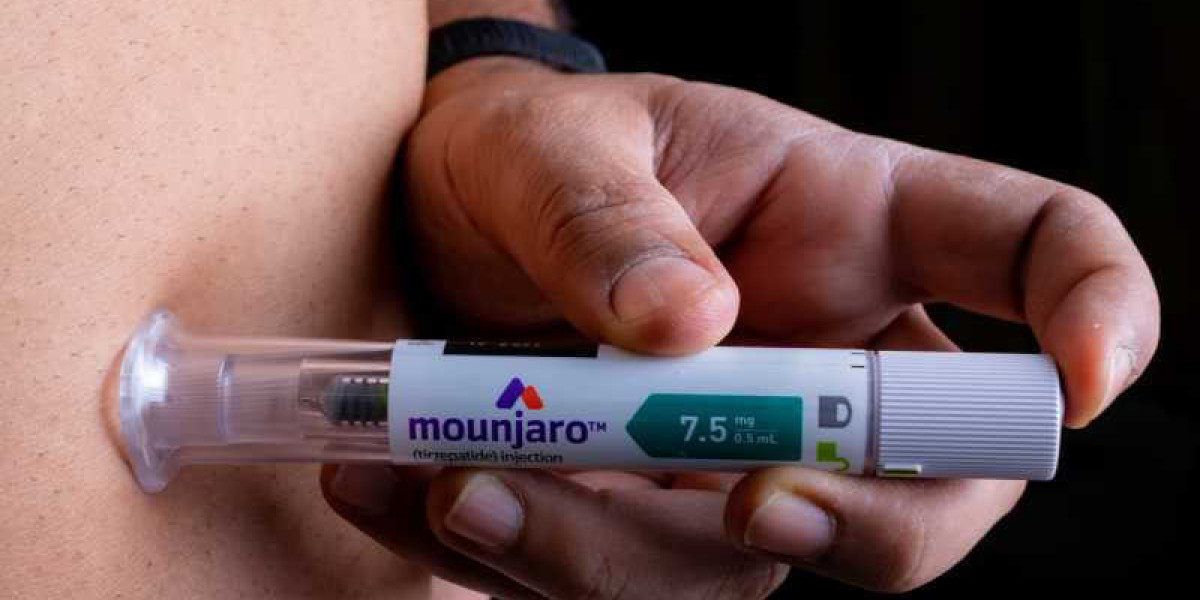Obesity is one of the most pressing health issues faced by people today, and Islamabad is no exception. For individuals struggling with excess weight, the journey toward a healthier body can often feel overwhelming. With modern medical science offering advanced treatments, two popular options have emerged: Mounjaro Injection in Islamabad and bariatric surgery. Both approaches aim to address obesity, but they differ significantly in terms of procedure, cost, recovery, and long-term outcomes. This article explores the differences between these two methods to help you make an informed decision.
Understanding Mounjaro Injections
Mounjaro (Tirzepatide) is an injectable medication that has been approved for the treatment of type 2 diabetes and is now recognized for its powerful weight loss benefits. It works by targeting two hormones—GLP-1 and GIP—that regulate appetite, blood sugar levels, and metabolism.
Unlike invasive procedures, Mounjaro is a non-surgical option that helps reduce hunger, promotes satiety, and improves metabolic function. For patients in Islamabad seeking a less invasive yet effective weight loss solution, Mounjaro offers a promising alternative.
What is Bariatric Surgery?
Bariatric surgery refers to surgical procedures that alter the digestive system to promote weight loss. Common types include:
Gastric Bypass Surgery: Redirects food to a small pouch in the stomach, reducing calorie absorption.
Sleeve Gastrectomy: Removes part of the stomach to limit food intake.
Adjustable Gastric Banding: Places a band around the stomach to restrict food consumption.
These procedures are typically recommended for patients with severe obesity or obesity-related health conditions when lifestyle changes and medications have not worked.
Effectiveness of Each Approach
Mounjaro Injection
Clinical studies show that patients can lose a significant percentage of their body weight within months.
It provides consistent results for those who struggle with appetite control.
Works well when combined with lifestyle modifications such as exercise and diet.
Bariatric Surgery
Known to deliver dramatic weight loss, often up to 60–70% of excess body weight.
Helps resolve obesity-related conditions like type 2 diabetes, sleep apnea, and high blood pressure.
Considered a permanent solution, though it requires lifelong dietary changes.
Verdict: Bariatric surgery may offer more drastic results, but Mounjaro provides a safer, non-invasive pathway with fewer risks.
Risks and Side Effects
Mounjaro Injection
Side effects include nausea, digestive discomfort, or mild fatigue.
Generally well-tolerated under medical supervision.
Non-invasive, meaning no surgical risks.
Bariatric Surgery
Surgical risks include infection, bleeding, or anesthesia-related complications.
Long-term risks may include nutrient deficiencies, bowel obstruction, or ulcers.
Requires a strict, lifelong commitment to dietary supplements.
Verdict: Mounjaro is safer with fewer risks compared to the invasive nature of bariatric surgery.
Recovery and Downtime
Mounjaro Injection: No recovery time; patients can resume their daily activities immediately after the injection.
Bariatric Surgery: Requires hospitalization and weeks of recovery, along with dietary restrictions during the healing process.
Verdict: Mounjaro offers convenience and zero downtime, whereas bariatric surgery requires significant post-surgery care.
Cost Comparison
Mounjaro Injection in Islamabad: While the treatment may require ongoing costs for multiple injections, it is significantly more affordable than surgery.
Bariatric Surgery: One-time but very costly procedure, often out of reach for many patients due to high hospital and surgical expenses.
Verdict: Mounjaro is the more cost-effective option for individuals in Islamabad who want results without breaking the bank.
Who is the Right Candidate?
Mounjaro Injection: Suitable for individuals struggling with obesity, especially those with type 2 diabetes or those who have not seen success with traditional weight loss methods.
Bariatric Surgery: Recommended for people with severe obesity (BMI over 40, or BMI over 35 with health complications) who have tried other treatments without success.
Verdict: Mounjaro works well for moderate to severe obesity cases, while bariatric surgery is reserved for extreme cases.
Sustainability of Results
Mounjaro Injection: Effective as long as patients continue with treatment and healthy lifestyle practices. Weight maintenance depends on combining the injections with long-term lifestyle changes.
Bariatric Surgery: Can provide long-lasting results, but weight regain is possible if dietary guidelines are not followed.
Verdict: Both treatments require lifestyle commitment, but Mounjaro allows patients more flexibility and less drastic change compared to surgery.
Combining Both Options
Some patients in Islamabad may benefit from a combination approach. Bariatric surgery may be the ultimate solution for severe obesity, while Mounjaro injections can help manage weight before or after surgery to enhance results and prevent weight regain. Consulting a professional helps determine the best individualized treatment plan.
Final Thoughts
Both Mounjaro Injection in Islamabad and bariatric surgery aim to address the growing challenge of obesity, but they cater to different needs and patient profiles. Mounjaro offers a non-invasive, affordable, and effective option with minimal risks, making it suitable for many individuals struggling with weight. Bariatric surgery, on the other hand, delivers dramatic results but requires surgical intervention, recovery time, and lifelong dietary changes.



